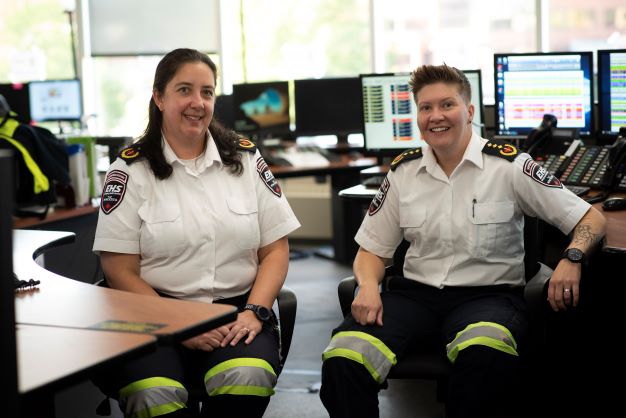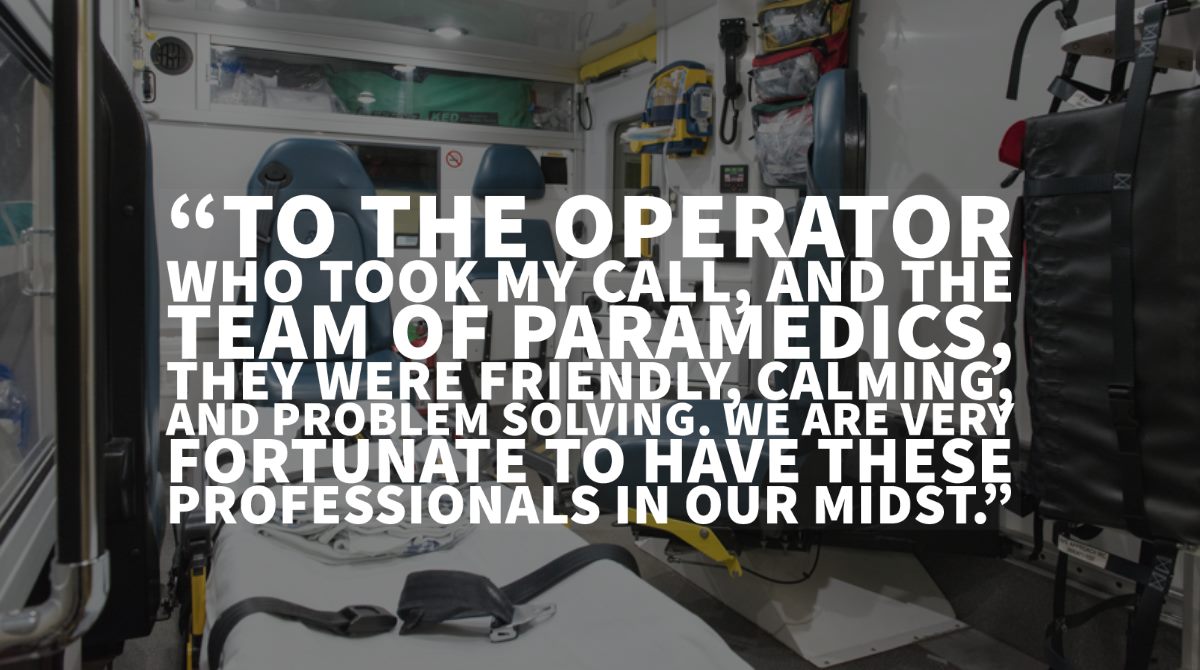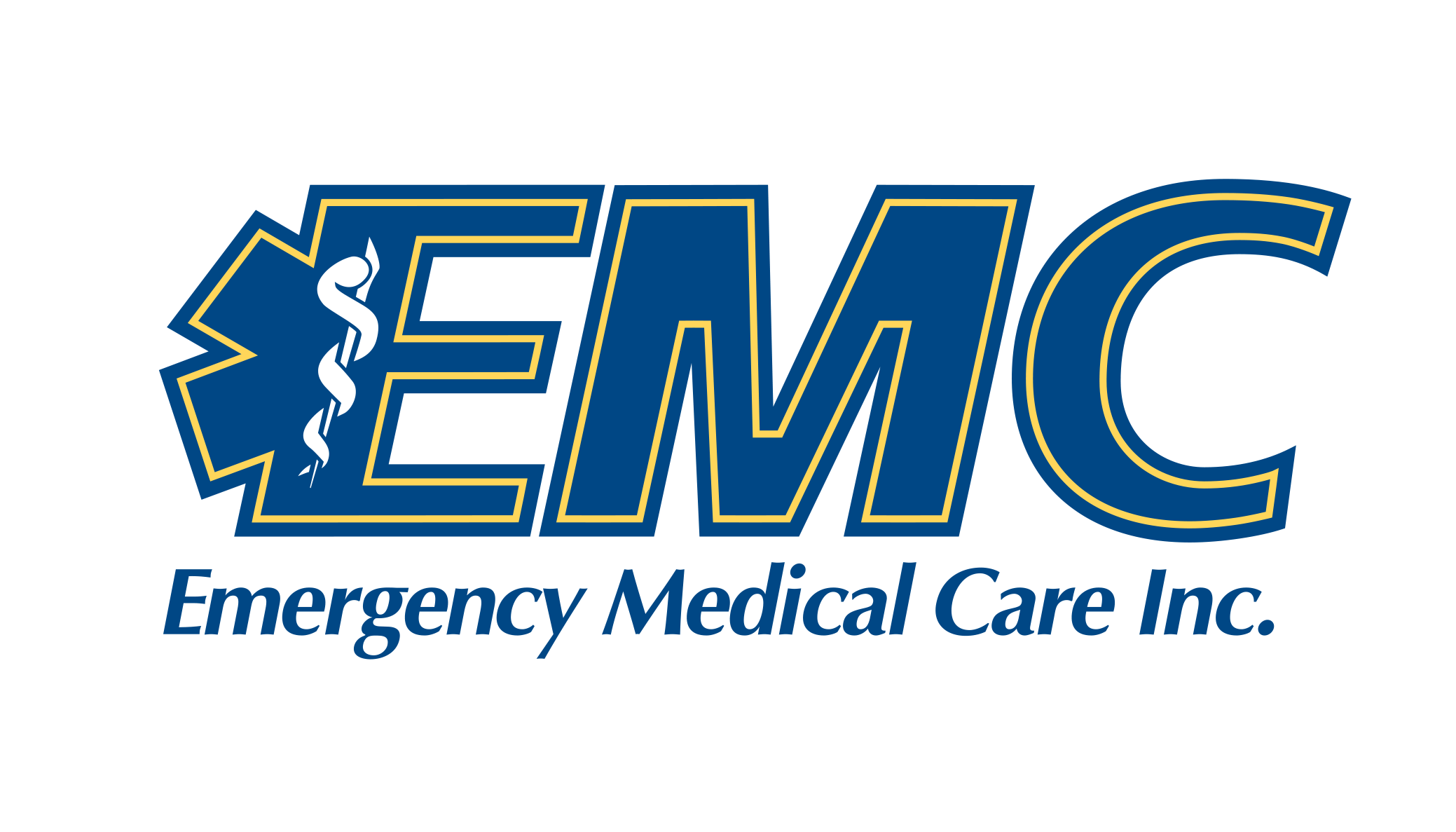Careers



Why Work for Us?
Our employees are the reason for our success. They are dedicated to achieving excellence in every aspect of their roles. It is because of our incredible employees that we are able to provide such a proficient and effective pre-hospital care system to the people of Nova Scotia.
We are proud to support all the paramedics, emergency medical responders, nurses, communications officers and support staff who call Nova Scotia home. Whether born and raised here or new to the area, we all share a pride in being part of this province’s culture.
Training Information
Paramedicine
If you are interested in becoming a paramedic, there are three educational facilities within the Maritime Provinces where you can study:
Medavie HealthEd (Dartmouth, Nova Scotia Campus and Monction, New Brunswick Campus, ) offers a Primary Care Paramedicine program (available full-time, on site for 10 months) and an Advanced Care Paramedicine program (available full-time on site, or part-time on site or via distance). For more information, pleaase contact Medavie HealthEd at 1-888-798-3888 or [email protected].
Prince Edward Island’s Holland College (located in Charlottetown, PE) offers a Primary Care Paramedic program (available full-time, on site for 10 months), an Advanced Care Paramedic program (available full-time, on site or via distance [in selected locations] for 13 months), and an Advanced Care Paramedic – Distributed Learning program (available as a web-based option, up to 36 months).
Emergency Medical Responder
Those interested in becoming an emergency medical responder (EMR) can complete their studies at the Medavie HealthEd Nova Scotia campuses.
The full-time 12-week program covers basic theoretical and practical training in life-saving and patient assessment skills. EMRs will be deployed in the emergency response system when partnered with a paramedic. This configuration may be assigned to any emergency call in the same deployment manner as a paramedic-paramedic configuration. Deployment decisions are based on assigning the most appropriate unit considering patient acuity and EHS resource availability. EMRs will also work within the EHS transfer service, moving patient to, from and between healthcare facilities.
Nursing
Registered nurses who are interested in becoming part of the LifeFlight flight crew must initially meet all position requirements in our job postings. Once hired, nurses undergo a rigorous training program with our LifeFlight operations team to prepare them for the critical care flight environment. A certain number of missions must be completed as an observer before a nurse can officially go on a mission as a critical flight nurse. The timing of this process is dependent on the frequency and types of missions for which the helicopter is assigned. For more information, please contact our LifeFlight base at (902) 873-3657.
FAQ
This depends on a number of criteria such as location, movement and creation of vacancies within the bargaining unit. If a person is successful in the application process and becomes an employee with EMC, we provide tips on how to promote yourself for advancement to a permanent position.
Casual employment is on an on-call basis. Frequently, casual employees have an opportunity to work close to, if not equivalent to, full time hours. Hours can vary according to staffing requirements and time of year, and are not guaranteed hours.
If a person becomes an employee with EMC and interested in attaining full time employment – you can then apply to term, part-time and full-time bargaining unit positions that get posted internally on a weekly basis.
Casual employees are not part of the union unless the employee attains a bargaining unit position.
The Province is geographically divided by Regions and each Region has staff bases (or sites) located throughout communities in Nova Scotia. To find out more information on a location that may be of interest to you, please visit the Government of Nova Scotia’s About Nova Scotia website or Department of Tourism, Heritage & Culture website.
Click here to view where all the bases (or sites) are located throughout Nova Scotia.
If you’re applying for a ground ambulance position as a PCP/ACP, when submitting your employment application requirements – be sure to include your top three preferred areas you’d like to work in Nova Scotia and we will make every attempt to accommodate you based on operational requirements and availability for that time of year.
Typical shifts can be 12 or 24 hours and the shift times vary from site to site. A typical full time schedule for a 12 hour site would be 2 days, 2 nights, 4 off.
This includes applicable corporate “in-class” orientation, vehicle safety program training/local driving, and site/clinical orientation. Once an individual has successfully completed all sections of orientation, they will then be ready to accept calls to work shifts. We can accommodate most orientation components within a three-four week timeframe.
Casuals are paid the applicable hourly rate plus 4 % in lieu of vacation. While casual employees are not covered by the collective agreement provisions for full and part paramedics, there are many company provisions available to casual employees at no cost such as uniforms, on-going training, Employees & Family Assistance Program, WCB, staff events, etc.
Yes, you are paid on an hourly basis for any required orientation hours.
If you don’t pass the physical abilities test on the first attempt, you can reschedule a second test appointment. You will be responsible to pay for the cost of the test for each appointment. The P-PAT is a mandatory hiring requirement, and must be passed successfully prior to being invited to one of our orientations.
The Medical Communications Centre is located in the Burnside Industrial Park in Dartmouth.
Lifeflight has a hangar at the Halifax Stanfield International Airport.
